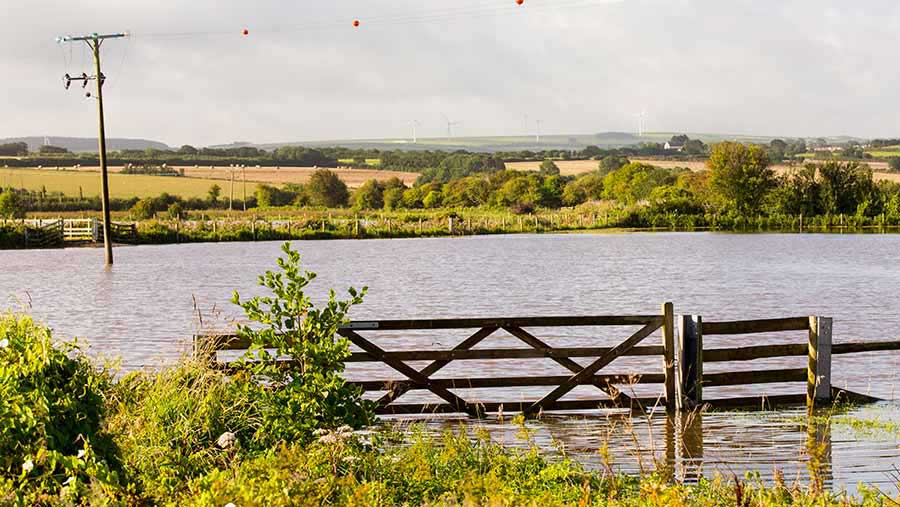Pay farmers to reduce flood risk post-Brexit – National Trust
 © Rex/Shutterstock
© Rex/Shutterstock Farmers could be paid millions of pounds to introduce measures on land to reduce flood risk as part of a post-Brexit agricultural policy, according to a new report.
Groups of farmers would work together to sell flood protection and clean water to water companies and public authorities, under the proposals outlined by think tank Green Alliance and charity the National Trust.
The scheme, called National Infrastructure Schemes (NIS), offers a new funding model for “green farming” to create new markets for sustainable land management.
See also: Defra flood report ‘fails to recognise farming’
Upland farmers who are struggling to make ends meet could benefit most from the funding model, says the report, published today (Wednesday, 28 September).
Land management services would include tree planting, the creation of riparian strips and rainwater storage on farms.
Sue Armstrong-Brown, policy director at Green Alliance, said: “The old CAP subsidy-and-grant approach is inadequate to deal with the pressures on land and the realities of farm economics.
“The potential market for environmentally beneficial farming could be worth millions – far more than the £400m available to farmers through government agri-environment schemes.
“We need to make farming part of the way the environment is returned to health, and that means making good environmental management pay.”
Pilot scheme
Green Alliance and the National Trust said it would be working alongside landowners and businesses over the next 12 months to prepare to introduce pilot NIS schemes in the UK.
Patrick Begg, rural enterprises director at National Trust, said: “Farmers should be paid fairly for producing great food in a way that supports the long-term health of our farmland.
“The NIS scheme is about creating a market for services from farming that today go unrewarded – reducing flood risks, improving water quality and creating homes for wildlife, while at the same time opening up new revenue opportunities for farmers.”
Farmer reaction
Chris Clark, who farms hundreds of acres of peaty moorland rising to 1,600ft at Nethergill Farm, in the Yorkshire Dales, said: “As we prepare to leave the CAP, diversifying how we make money from our land makes good business sense.
“Setting up marketing groups for our green services would offer a great deal for farmers and for our customers. The appetite exists for doing things differently, if we can make it pay.”
NFU head of policy services Andrea Graham said: “Farmers are involved with many schemes which provide a flood mitigation service for other stakeholders in the catchment.
“We welcome an opportunity to devise new ways to both recognise and reward farmers for the multiple benefits they deliver, including flood mitigation.
“It is important that any scheme developed works for both tenants and landowners, and the scheme’s success is dependent upon early engagement with both parties.”
She added: “We now have the chance to help shape a new domestic agricultural policy that helps farmers and growers to prosper and puts food on the nation’s plates.
“We also need a new fit-for-purpose environmental scheme that builds on farming’s environmental role, allowing all farmers to care for the countryside and wildlife and mitigate climate change, alongside their core food production role.”
In August, Dame Helen Ghosh National Trust director-general, said farmers should only be rewarded for managing land in a nature-friendly way, and direct subsidies should be removed altogether in a post-Brexit rural policy.
